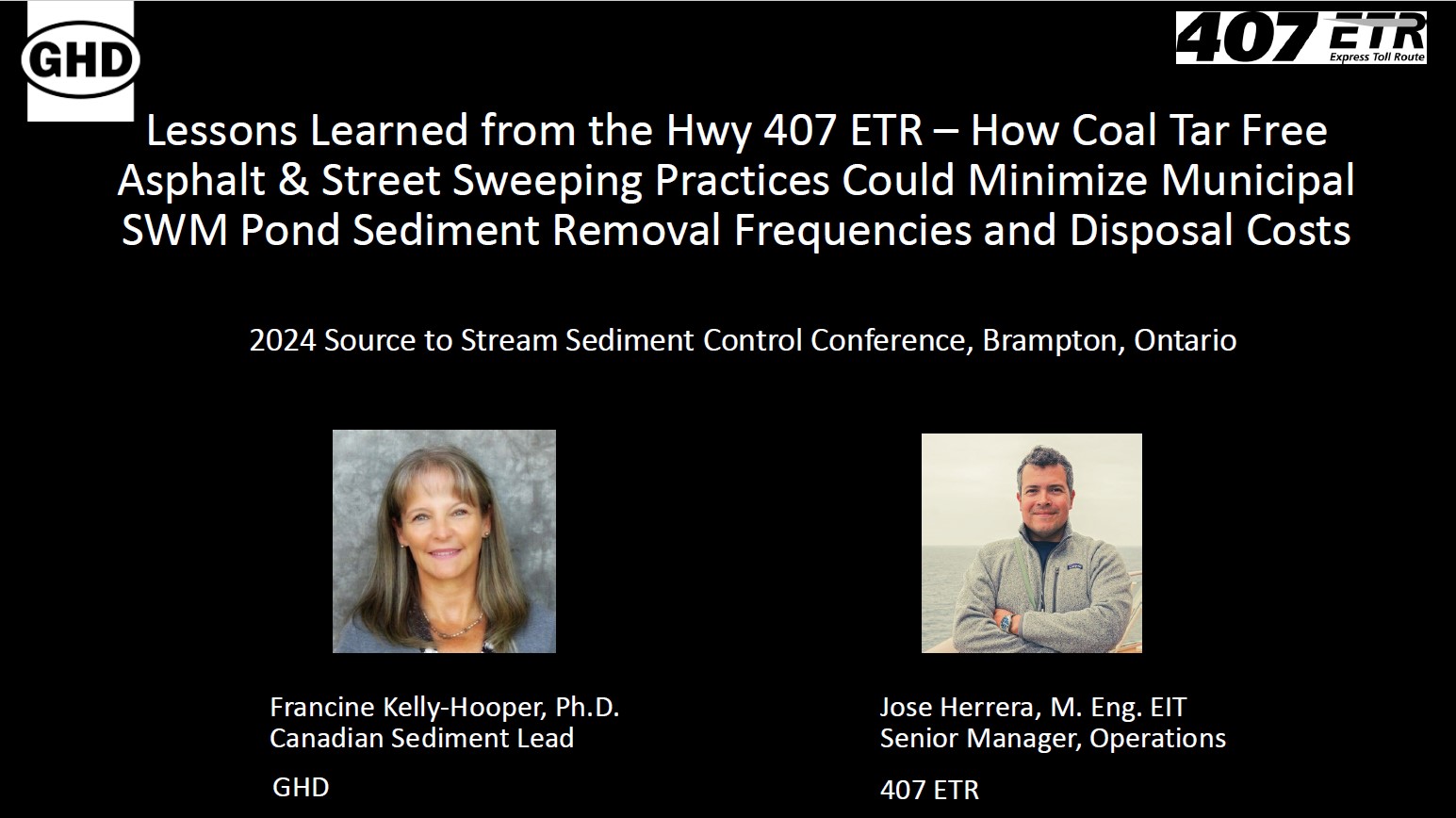TRACK 2, DAY 1
Lessons Learned from the Hwy 407 ETR – How Coal Tar Free Asphalt & Street Sweeping Practices Could Minimize Municipal SWM Pond Sediment Removal Frequencies and Disposal Costs
ABSTRACT
Municipal Stormwater Management Pond (SWM) sediment cleanouts are typically required every 10-15 years. Most sediments are classified as non-hazardous waste materials due to elevated polycyclic aromatic hydrocarbons (PAHs) from coal tar sources, which are commonly used to bind and seal asphalt pavements. Sediment removal and disposal practices can cost municipalities millions of dollars each years.
The Highway 407 ETR Corporation owns and maintains over 70 SWM ponds, with most being under 20 years of age. Extensive bathymetric surveys have shown minimal sediment accumulation of less than 12 cm in most ponds, which may be attributed to routine street sweeping practices. Chemistry analysis of sediment and asphalt pavement samples has found non-detectable PAH concentrations, which may be attributed to coal tar free asphalt products.
As a result, the 407 ETR has never incurred any routine sediment removal or disposal costs, even though they own many ponds that are older than 20 years of age. These predictable trends could present new strategies for substantial cost savings by municipal SWM pond owners as well.
ABOUT THE PRESENTERS

Francine Kelly-Hooper, GHD
Francine Kelly-Hooper, Ph.D., is a Subject Matter Expert (SME) in SWM pond sediment beneficial reuse and petroleum hydrocarbon (PHC) forensic evaluations.
She operated her own consulting firm from 1998-2014, during which time she also completed her Ph.D. at the University of Waterloo.
Francine continues her research as the Canadian Sediment Lead at the GHD Group.

Jose Herrera, 407 ETR
Jose is a Professional Engineer with more than a decade of experience in the design, construction, and operations of flagship 400-series Urban Freeway projects in Ontario.
A key figure at 407 ETR for the past seven years, Jose manages the operations of a 1280 combined lane-km corridor used by more than 400,000 daily users. Jose’s primary focus is to leverage his engineering expertise and deep understanding of road construction and operations to deliver innovative, out-of-the-box solutions that have allowed several of 407 ETR’s operations to become more efficient and also environmentally friendly.
Examples of these solutions have included the reduction of the 407 ETR winter fleet by 12% and increasing service levels by 16% by using new technologies, and the reuse of concrete grinding which has redirected over 12,000 tonnes of material from going into landfills.

